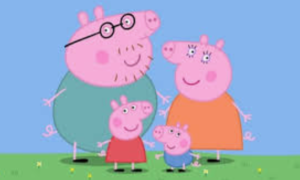By Katrina Mallon
Our children love to be told how wonderful they are (we all do!) We can use praise and encouragement to develop our children and young people’s self-esteem, confidence and to help them to think and talk positively about themselves. Children consider praise to be a reward in itself, but we can also use it to support them in developing healthy attitudes and values and even to address and improve tricky behaviour. Using praise effectively is one of our most powerful parenting strategies, here are some of my top tips.
1. Catch them being good!
If you’re looking for the negative, you’re always going to find it – thankfully, the same goes for the positive. Notice the positives and give your child some words of encouragement every day. The small things you say can build up over time to have a big effect.
2. Be specific
Praise works best when it describes the attitudes, values and behaviours that you like or want to see more of. For example, try saying things like:
· “I love how you helped to put away your toys so nicely.”
· “I’m really pleased that you came home on time like you said you would.”
3. Focus on values and effort (process) rather than just outcomes
Compliment your children for their attitudes and values (kindness, empathy, trying again). Using praise in this way will motivate, encourage and inspire your child to develop these qualities and attributes:
· “Thank you for being so kind and gentle with your sister.”
· “It’s hard to wait your turn but you are being so patient.”
Praise and encourage effort – when you can see your child is trying or has tried hard:
· “That jigsaw was really tricky, but you kept trying.”
· “I love that you didn’t give up on your homework even though it was really difficult.”
When praise is focused on effort, children are more likely to see trying hard as a good thing. They’re also more likely to keep trying and to be optimistic when they face challenges.
You can also use encouragement before your child does something”
· “Let’s see how well you can help me with the shopping.”
· “I know you’re nervous about the test – but you’ve worked hard, no matter how it turns out you’ve done your best!”
4. Children are more likely to repeat behaviour that earns praise or encouragement
This means you can use praise and encouragement to support your child with tricky behaviours. The first step is to watch for times when your child behaves in positive ways or makes an effort. When you see this, immediately get their attention and tell them exactly what you liked – at first, you can praise every time you see the specific behaviour or effort. When it happens more often you can praise or encourage it less.
5. Look for nonverbal ways to praise or encourage your child.
A thumbs up, smile or high five can be powerful ways to show your child you’re impressed by their behaviour or efforts.
6. Don’t Overdo It
If you praise every little thing or aren’t genuine you lose credibility – children can tell the difference between fake praise and the real thing, Overpraising – “you’re the best”, “you’re the smartest”, “you’re the most wonderful” – can set children up for disappointment.
7. Use praise and encouragement in child and age-appropriate ways.
Some children (and teenagers!) might not want to be praised publicly for their efforts, others might love being singled out for praise; do what works for your child and don’t forget to use language to suit their age and stage of development.
Some attitudes and values to praise and encourage.
Honesty – Kindness – Patience – Gentleness – Sharing – Respect – Thoughtfulness – Manners – Courage – Perseverance – Love -Consideration – Gratitude – Cooperation – Working Hard – Compassion – Taking Turns -Trying Again – Bravery – Making things right – It’s OK to make mistakes/fail – Responsibility – Curiosity
As well as any others that you feel are important!
Not sure where to start? Try these…
· Thank you for…
· It makes mornings/dinner/outings easier when you…. thank you.
· I really appreciate it when you…
· You did it on your own!
· You did…. and then….. and worked it out.
· That took you a long time, and you did it!
· I really enjoy doing this with you.
· I love watching you create/ help your sister/play soccer/ etc.
· Look how happy your friend is when you share help/smile/etc.
· You kept going, even when it was hard.
· You look so pleased to have done that!
· You made…….feel so pleased when you….
· I’m so proud that you….




